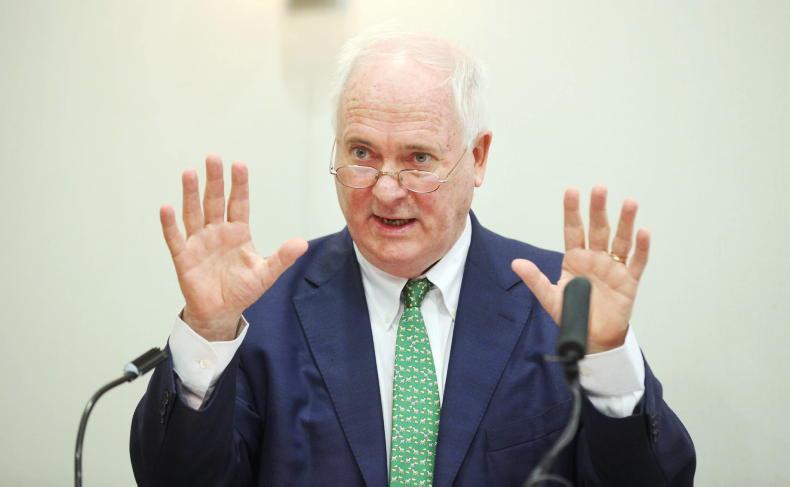What lessons are to be learned from the unfortunate controversy around the European Commission’s brief consideration of using Article 16 of the Northern Ireland Protocol to stop exports of some COVID-19 vaccines to Britain via Northern Ireland?
It is important to get the right answer to this question now, because this sort of Article 16 problem could recur over and over again for years to come, as the UK diverges from the EU.
The first thing to say is that the restrictions on exports of certain vaccines are still going ahead.
All that has changed is that Article 16 of the protocol is not being used to enforce the restrictions. The restrictions will presumably be enforced in, and by, the pharmaceutical manufacturing plants themselves, inside the EU rather than on the border.
Restrictions
Secondly, the restrictions only apply to vaccines that were subject to an advance purchase agreement with the European Commission, where the European taxpayer had put up money to help the pharmaceutical manufacturers to develop and test the vaccines. This was agreed on the basis that the EU would then get supplies of the vaccines under an agreed schedule from the manufacturer.
This is not unreasonable in itself.
It is open to question whether the present elaborate process of export restriction and authorisation was really necessary to ensure the EU got the supplies. A threat of civil legal action for breach of contract would seem to be a more targeted approach than the highly bureaucratic export ban we now have.
Of course, it is theoretically possible that Northern Ireland could have been used as a backdoor to circumvent the EU restriction of exports to the rest of the UK. To avoid this, the regulation, now in force, still requires information to be provided on vaccines going to Northern Ireland.
But it is quite clear that Article 16 was not the right tool to use to achieve the goal the Commission had set for itself.
We should look at what Article 16 of the protocol allows.
It provides for unilateral safeguard measures to be adopted by either the EU or the UK, where there are difficulties that “are liable to persist”.
Under Article 16, the safeguard measures should only be ones that are “strictly necessary to remedy the situation”.
Arguably, neither condition was met in this case.
The vaccine supply difficulties are inherently temporary. They are not likely to persist.
Other measures could be adopted, within the EU itself, to require the vaccine manufacturers to meet their obligations, without using Article 16 of the protocol. So the use of Article 16 was not “strictly necessary”. It should be a last resort, not a first resort.
So why then did use of Article 16 come to be considered by the Commission at all?
There was a degree of panic in many countries, notably Germany and France, about the pace of supply of vaccines.
The Commission was coming under pressure.
Even though it was the manufacturers that were failing to fulfil their contracts, it was the Commission that had negotiated those contracts.
The fact that negotiating this sort of contract was something new for the Commission was not an acceptable excuse, nor was it enough to say that the delays might have been much greater, and the price to the taxpayer much higher, if each of the 27 EU countries had been left to negotiate their own contracts, and outbid one another.
But Commission president Ursula Von der Leyen felt she had to show she was “doing something”.
Speedy introduction
She decided on the speedy introduction of selective export restrictions.
In the interests of speed, she adopted a decision-making procedure that maximised the possibility of mistakes. Rather than call a video conference of the full Commission, she decided to push the ban through using a written procedure, with minimal time for scrutiny.
Adopting such a radical measure as an export restriction by this shortcut written procedure was inherently problematic. It should never happen again.
Article 17 (8) of the treaty makes clear that the Commission, as a body, is responsible for its acts, and the Commission’s own rules of procedure state clearly that “the Commission shall act collectively”.
Last-minute use of the written procedure for making important international decisions minimised the possibility of genuinely collective decision-making by commissioners. This sort of thing should not happen again. It weakens the authority of the Commission, and of the EU as a whole.
The other lesson to take from this situation is the inherently fragile nature of compromise that is represented by the Northern Ireland Protocol.
Goods standards
The protocol requires the UK to implement and enforce EU law in respect of goods standards within part of the UK, and to prevent goods entering that part of the UK if they do not comply with these standards. That is no small thing.
That is not so difficult now, as the UK has only just left the EU, and UK and EU goods standards are almost identical.
But, gradually, the UK may begin to adopt different rules on standards of goods covered by the protocol. Every time it does that, there will be an additional barrier or restriction between Britain and Northern Ireland. There is also the possibility of disputes on the interpretation of the Trade and Co-operation Agreement (TCA) between the UK and the EU.
Rebalancing
Under Article 9.4 of the TCA, either side may adopt “rebalancing measures”, where there is a significant divergence from the level playing field provisions of the TCA, if they feel they have been put at a disadvantage by the divergence.
To the extent, if any, that these “rebalancing measures” affect Northern Ireland, there will be an additional issue to be solved.
So one must hope that it never comes to this, and that the UK and the EU work in harmony in future, because the more disharmony there is, the greater will be the political problems for both parts of Ireland.









SHARING OPTIONS